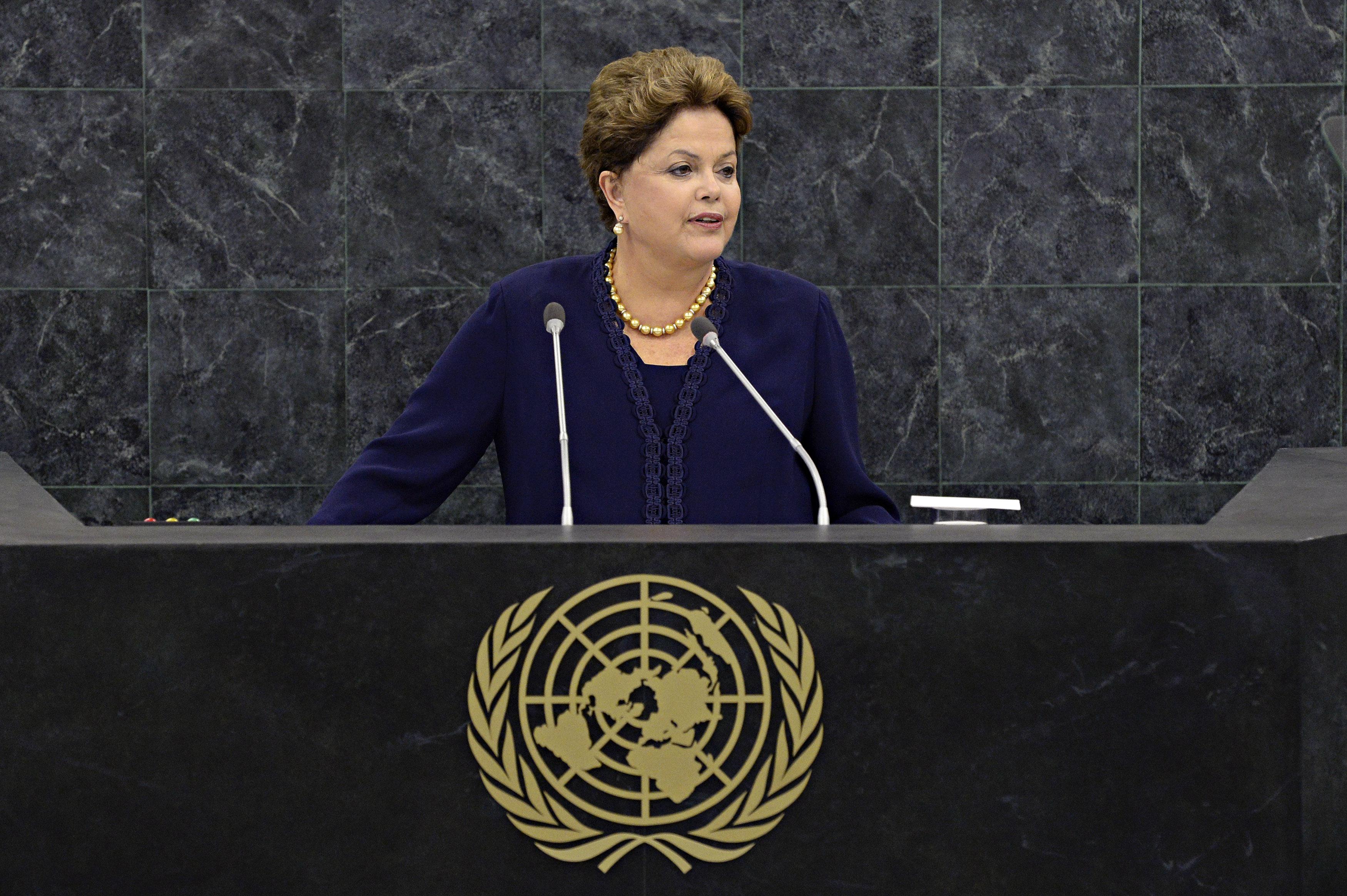As expected, President Dilma Rousseff, who recently canceled a planned state visit to Washington over reports of U.S. spying on the Brazilian government, took advantage of her speech to the U.N. General Assembly to respond to the allegations. She laid out a vision of cybersecurity and net neutrality that is probably at odds with how those concepts are usually understood by privacy advocates in the United States:
As many other Latin Americans, I fought against authoritarianism and censorship, and I cannot but defend, in an uncompromising fashion, the right to privacy of individuals and the sovereignty of my country. In the absence of the right to privacy, there can be no true freedom of expression and opinion, and therefore no effective democracy. In the absence of the respect for sovereignty, there is no basis for the relationship among Nations.
We face, Mr. President, a situation of grave violation of human rights and of civil liberties; of invasion and capture of confidential information concerning corporate activities, and especially of disrespect to national sovereignty.
We expressed to the Government of the United States our disapproval, and demanded explanations, apologies and guarantees that such procedures will never be repeated.[…]
The United Nations must play a leading role in the effort to regulate the conduct of States with regard to these technologies. For this reason, Brazil will present proposals for the establishment of a civilian multilateral framework for the governance and use of the Internet and to ensure the effective protection of data that travels through the web.
The speech follows calls by Rousseff’s government for companies like Google and Facebook to store Brazilan users’ data within the country and its support, along with countries like Russia and China, at the International Telecommunications Union conference earlier this year, for changes in internet governance to give governments more control over the flow of telecommunications.
Despite some concerns, Brazil has a relatively free and open online communications. But the model of cybersovereignty Rousseff seems to have in mind could conceivably empower authoritarian state to police their citizens’ online activities to a much greater extent. Rousseff’s view contrasts starkly that of American Internet freedom advocates like Vinton Cerf, who believes such rule changes like these could cripple the free exchange of information online.
President Barack Obama addressed concerns over U.S. surveillance in his own speech to the General Assembly this morning, saying, “just as we reviewed how we deploy our extraordinary military capabilities in a way that lives up to our ideals, we have begun to review the way that we gather intelligence, so as to properly balance the legitimate security concerns of our citizens and allies, with the privacy concerns that all people share.”
But after the revelations of this year, it’s a lot harder for the U.S. government to position itself as the global defender of best practices in cyberspace.
